by Ertuğrul Kürkçü
“It is highly likely that we will see much better how things will proceed after the handover [of the presidency] in America”, said a disgruntled President Recep Tayyip Erdoğan in Turkey, in reaction to the Countering America’s Adversaries Through Sanctions Act (CAATSA) sanctions that were passed last week by an overwhelming bi-partisan majority in the US Congress.
“I have had very good relations with both the outgoing President Trump and the President-elect Biden. I don’t understand what happened to abruptly impose the CAATSA sanctions. I very well know Biden and in spite of his [negative] statement, I refrained from a [bitter] response. I’ve got used to certain things”, Erdoğan told journalists in anticipation of Biden heading the US administration.
Pretending to shift the talk to his personal relations with the US leaders, Erdoğan seeks to underrate the force of the Congress legislation and deliberately emphasizes the significance of Turkey’s alliance with the US – the two countries “among the first five in NATO”. Erdoğan is, of course, well aware of the negative impacts that will come about with the implementation of the “12 points” of the “Protect Against Conflict by Turkey Act” [PACT Act] in retaliation against Turkey’s purchasing and testing of the Russian missile defense system S-400. The recent US legislation tasks the president with implementing at least 5 of the 12 sanctions ranging from targeting individual officials to imposing arms embargoes. The severity of its international impact on Turkey’s financial credibility is so imminent that the day after the Congress decision, the Turkish Lira dropped as much as 1.7% to 8.0272 per dollar and “the prospect of US sanctions dimmed the outlook for the Turkish currency”, noted Uğur Yılmaz of Bloomberg Turkey.
Erdoğan’s controversy with Washington is not limited to Ankara’s unexpectedly rapid rapprochement with Moscow alone. In spite of good personal relations with the outgoing president Trump, Erdoğan is already at odds with the US establishment due to his aggressive military stand towards the Kurdish led Syrian Democratic Forces (SDF) which undermines the hard won victory against the Islamic State of Iraq and Syria (ISIS) in Northern Syria. Furthermore, Erdoğan’s bid to reestablish an extended Turkish Exclusive Economic Zone (EEZ) in the Eastern Mediterranean through a one-sided naval force display against two EU member countries Cyprus and Greece has become another concern for Washington.
The discrepancies between Washington and Ankara bluntly surfaced in the previous week during the NATO Foreign Ministers’ virtual meeting on 3 December when the US Secretary of State Mike Pompeo and Foreign Minister Mevlüt Çavuşoğlu of Turkey openly clashed. Pompeo accused Turkey for violating the Greek and Cypriot maritime territory in the Eastern Mediterranean and playing in Russia’s hands with the S-400 purchase. A furious Cavuşoğlu responded to Pompeo with accusations of siding blindly with Greece in the Mediterranean conflict while pushing Turkey out of the F-35 co-production and purchasing project and refusing US-made Patriot anti-aircraft missiles sales.
Pompeo was backed by French Foreign Minister Jean-Yves Le Drian and the Greek Foreign Minister Nikos Dendias. However, Ankara’s isolation became further evident as the summit closed with the rejection by all allies of Çavuşoğlu’s call for NATO to take a role in Libya’s civil war against the Hafter-led forces. Ankara, indeed, was accused by the allies of fanning the Libya conflict by deploying jihadist proxies in support of the Tripoli based Government of National Accord (GNA).
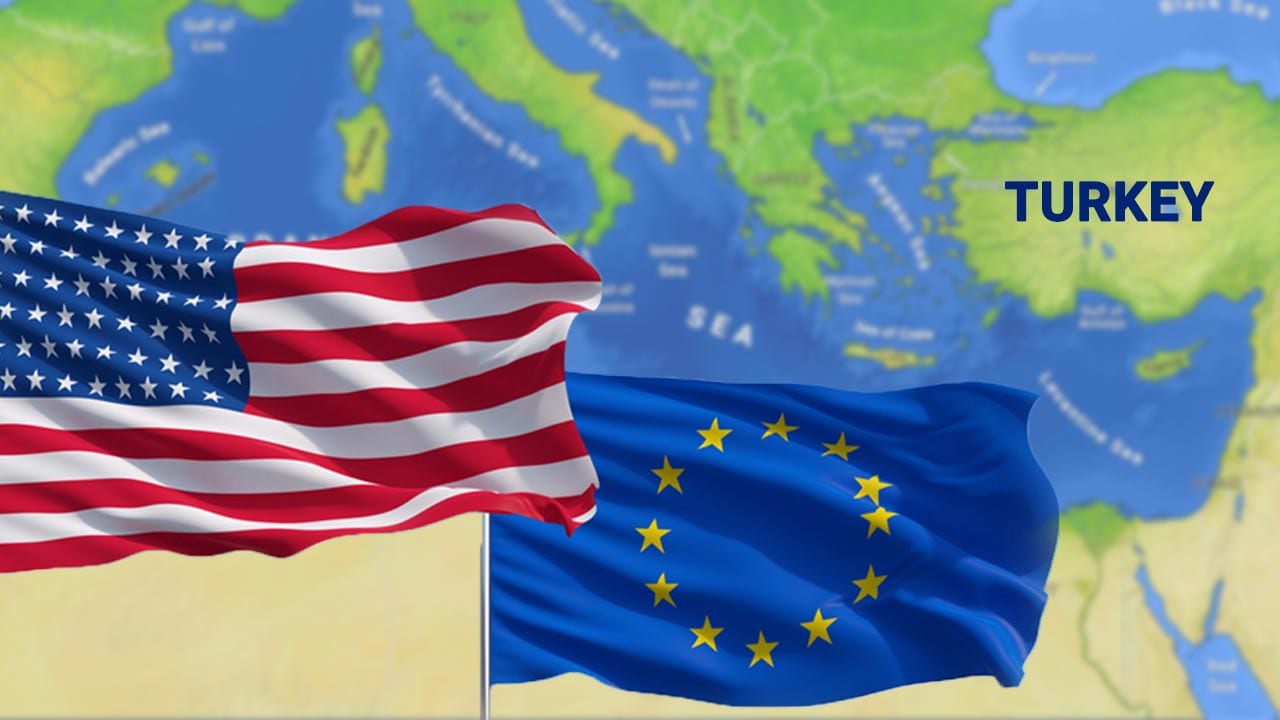
Adding insult to injury, the European Council summit on 11 December, evaluating the developments since the 1 October summit concerning Turkey’s controversial activities in the eastern Mediterranean, decided to impose sanctions – not on a governmental level but on an unspecified number of Turkish officials and companies involved in gas drilling in the Cyprus EEZ. Nevertheless, EU leaders postponed major decisions such as trade tariffs or an arms embargo until the Biden administration takes over in the new year.
This was not what President Recep Tayyip Erdoğan was expecting when he overhauled his economic team, including his son-in-law the Finance Minister, last month alongside pledges of “market-friendly policies” and a long-awaited rate hike as well as his public eulogisms of the European Union and the United States.
Following months of criticisms of “the West and Europe” as the major road block to Turkey’s road to progress, Erdoğan in a virtual speech to his party members in late November, out of the blue, declared: “We always see ourselves as part of Europe”. He added: “We chose to favour Europe as long as they don’t force us to look elsewhere”. Pledges of “human rights reforms” accompanied the unexpected turn in Erdoğan’s identity claims in Europe. Speaking after a cabinet meeting last month, Erdoğan also announced that: “In the coming days, the draft of the Human Rights Action Plan will be finalized by working with all of the country’s economic stakeholders”.
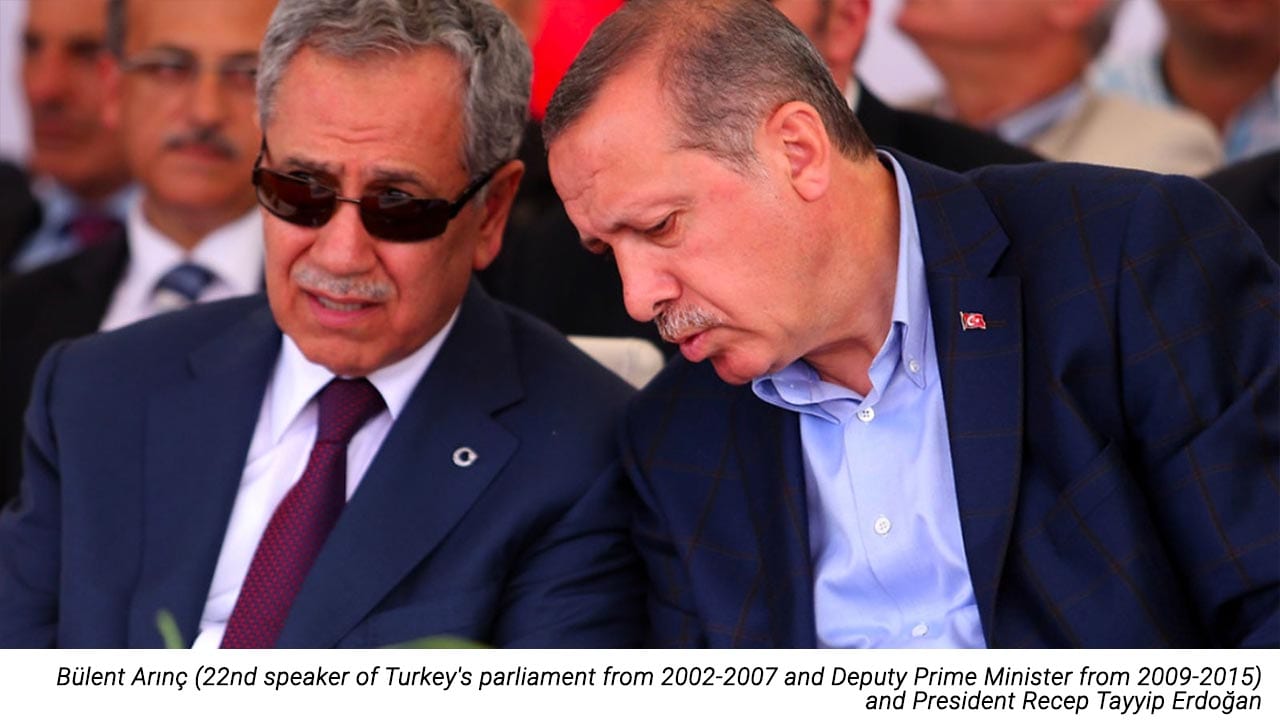
However, it took only two days for the tensions within Erdoğan’s narrow power structure to surface and destroy the prefunctory “human rights” and “market reforms” coating over his ruthless autocracy. Mislead by the regime’s lip service to “rights reforms”, presidential advisor Bülent Arınç, a veteran ruling AKP founder and former parliament speaker, had to resign for his reckless call to end the arbitrary incarceration and release of former Peoples’ Democratic Party (HDP) co-President Selahattin Demirtaş and cultural rights defender, Osman Kavala.
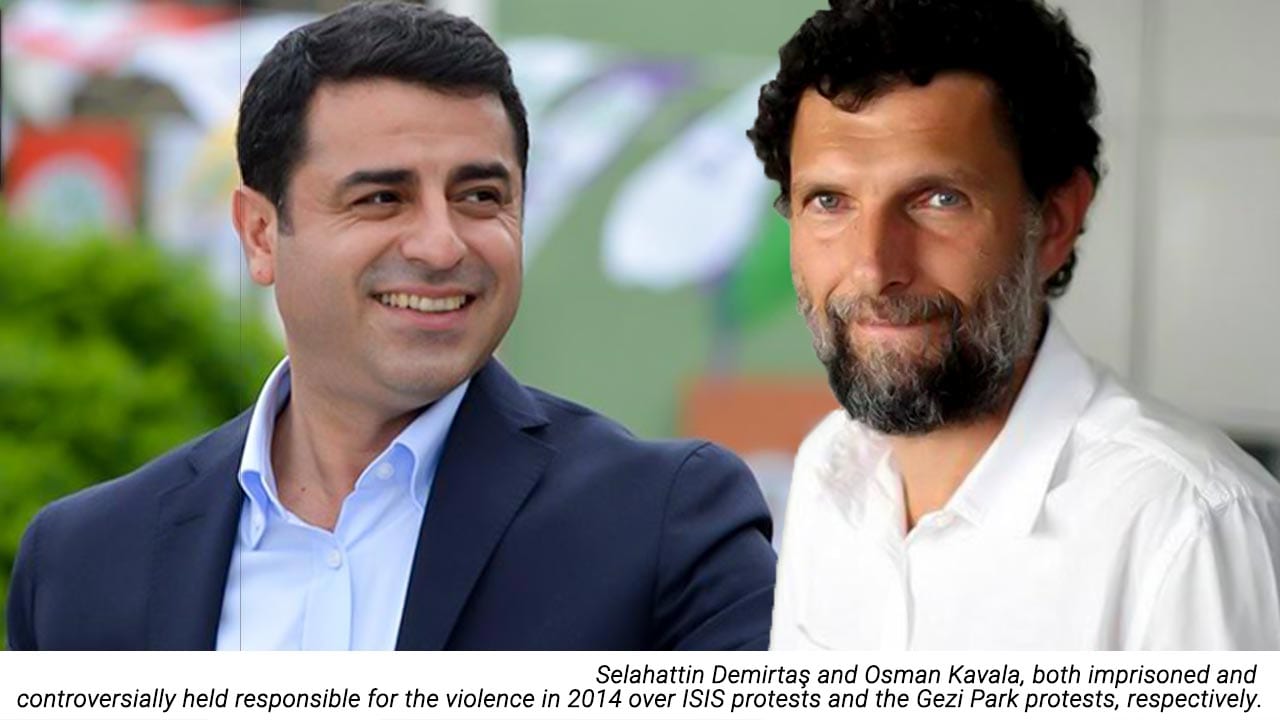
Holding Demirtaş responsible for disturbances and for the resulting violence in 2014 in Turkey’s Kurdish provinces in protest at ISIS’s siege of North Syrian Kurdish towns; and Kavala for the 2014 Gezi Park protests in Istanbul, Erdoğan publicly criticised Arınç for whitewashing “terrorism” and forced him to resign.
In a few days, Erdoğan also ruined the “market reforms” make-up that had been underlined by an interest hike of 15% by the new Central Bank Governor. Depicting the hike “a sour pill”, Erdoğan still persisted with his eccentric financial theory that “the high interest rates are the cause of soaring inflation and not vice versa”. Thus, he killed the rising expectations of a “market friendly” environment evoked by the overhaul of his previous financial team.
To add to this, the ‘destruction process’ was completed with a renewed wave of arrests of Kurdish political activists across Kurdish cities as well as in Peoples’ Democratic Party branches in the West.
The five sets of solid contradictory facts
From a simplistic perspective, Erdoğan’s tumbler-like “unpredicted” manoeuvres in domestic and international politics may be seen as the outcome of an incoherent mind. However, these seemingly incoherent responses comprise a coherent characteristic of Erdoğan’s political complexion. He remains straightly Islamist as long as he is not exposed to any force. When he is exposed to a superior force, he tends to move in that direction. When the superior force he has bowed before is cut back, he immediately moves to the opposite direction. Erdoğan’s perpetual shuttling from Americanism to Russianism, from Easternism to Westernism, from traditionalism to modernism, from fundamentalism to moderation stems from the actual balance of the contradictory social and political forces he relies on to maintain power. Erdoğan’s consistent inconsistency actually stems from five sets of solid contradictory facts.
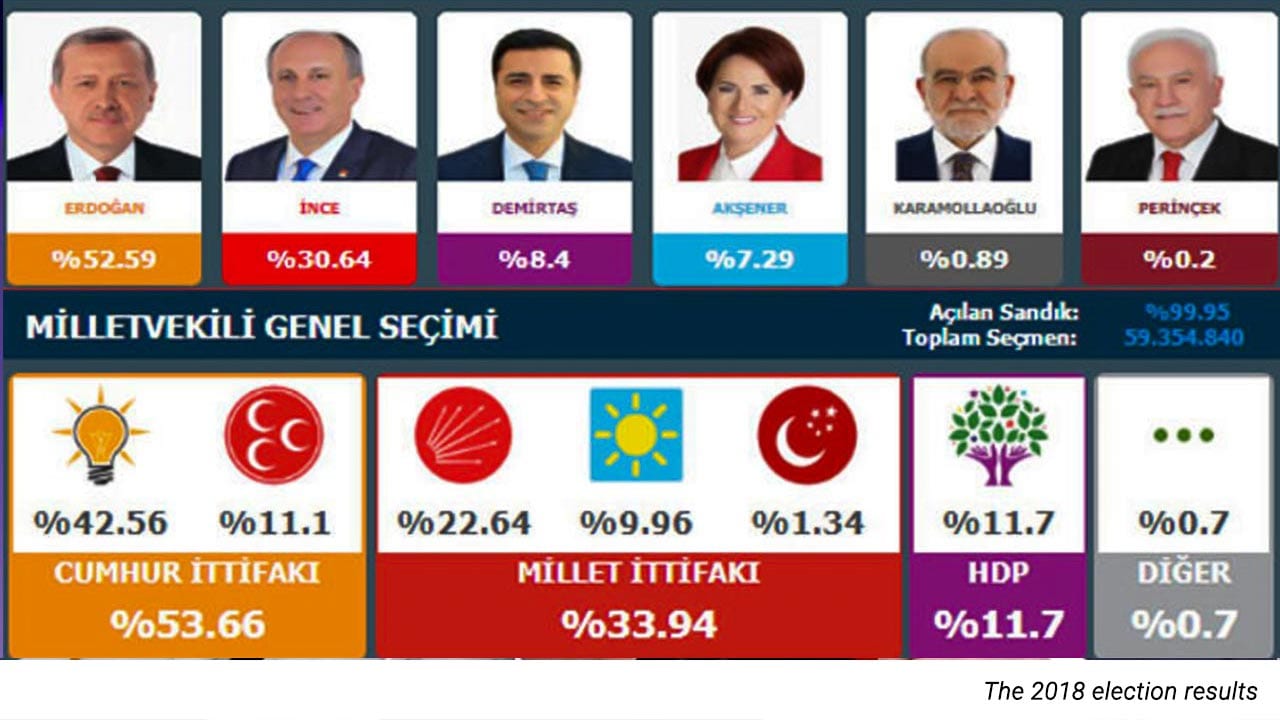
The first and the most crucial fact is the permanent hemorrhage in Erdoğan’s popular support. According to the November poll tracker by JamesinTurkey.com, the poll tracking company finds that – according to the average of all polls in November – the ruling Nationalist Action Party (MHP) and Justice and Development Party (AKP) coalition headed by Erdoğan, experienced a 6.6% loss since the June 2018 general elections, falling to 47.1% from 53.7%. The contending coalition of the Republican People’s Party (CHP) and the Good Party (İYİ) experienced a 3.7% increase from 32.5% to 36.2%. Under these circumstances, if the opposition coalition decides to forge a political alliance with the Peoples’ Democratic Party (HDP) – the joint Kurdish and Turkish democratic-left political organization – and the AKP splitters Gelecek and Deva and the Islamist Saadet party, Erdoğan and his Presidential regime is inevitably doomed in the forthcoming 2023 general elections. It is this shrinking power base that pushes Erdoğan to seek new venues for regrouping the business sector around his leadership. But his ultranationalist and reactionary allies deny him any margin even for cosmetic purposes.
The second fact is the unbending democratic and national resistance by the working classes and the Kurdish opposition. Mainly grouped around the Peoples’ Democratic Party (HDP), the democratic resistance, in spite of reprisals, brutal suppression and the imposition of draconian rule -without freedom of the press and the media and independent justice – has been continuing since 2016. During the last four years, under the authoritarian rule of the Erdoğan-led right wing coalition, the Kurdish resistance has succeeded in maintaining political momentum across Kurdistan and those metropolitan areas of the West with considerable Kurdish populations. This situation has placed the joint Kurdish and democratic movement into a unique position of a “Third Pole” what cannot be destroyed by conventional repressive policies. It leaves no margin for Erdoğan to play with Kurdish expectations.
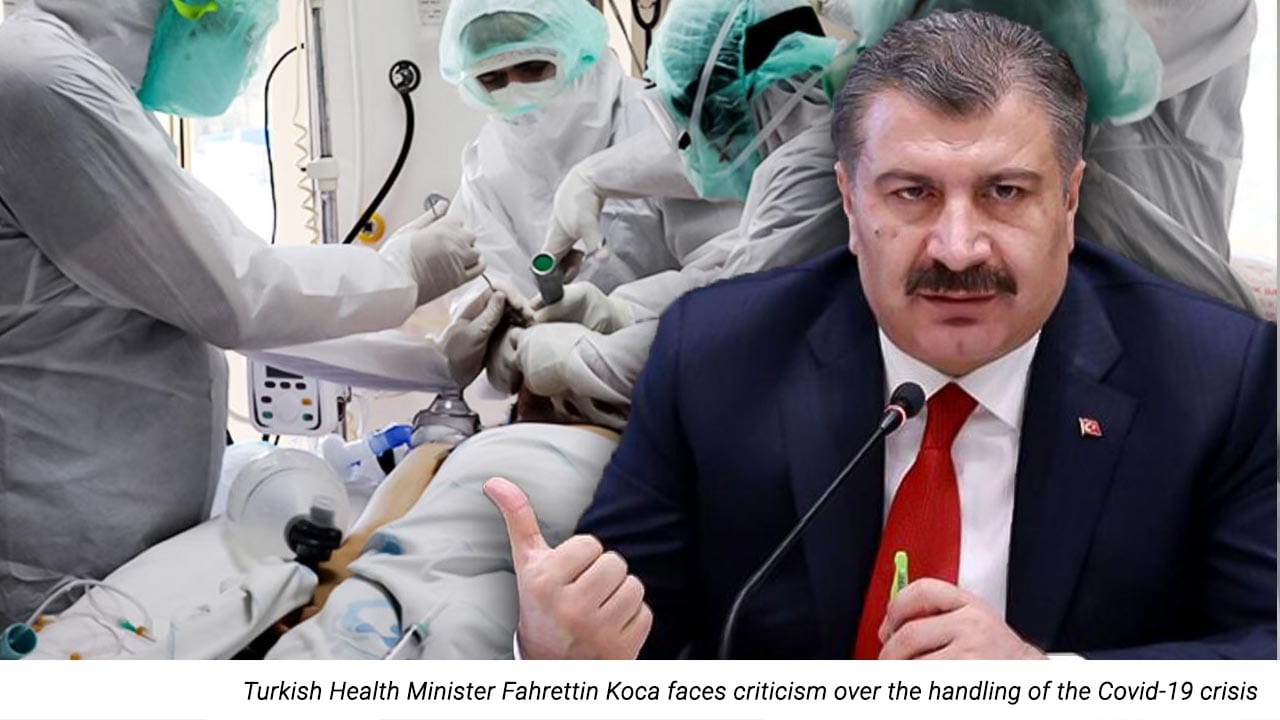
The third fact is the ruling coalition’s inability and incompetence in addressing the COVID-19 crisis. Since its first appearance in February 2019, the public health crisis has deepened social fissures across Turkey’s unequal and uneven social landscape, hitting the most disadvantaged and impoverished sectors first and aggravated the already existing health, housing, employment and subsistence gaps between the poor and the rich. It has detached the ruling government from its once significant power base – the suburbs of the metropolitan areas – and cost Erdoğan his previous hegemony at a local level in Turkey’s 12 major urban centres.
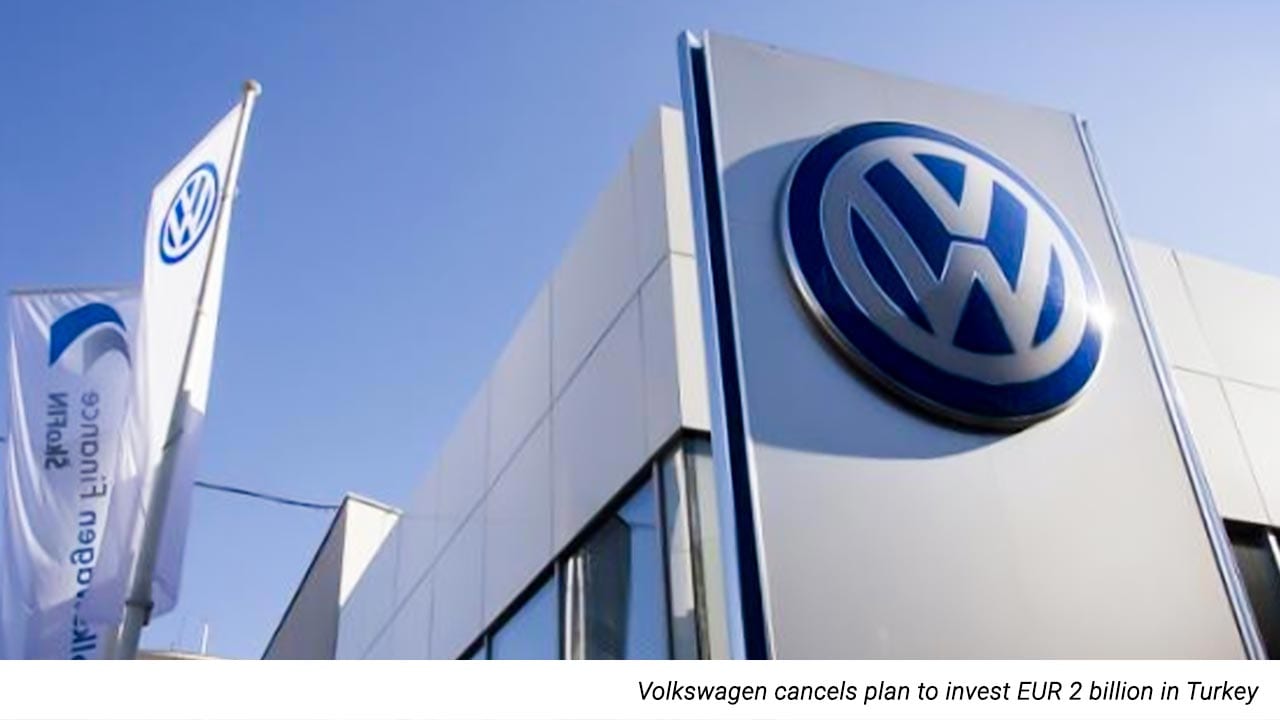
The fourth fact is Turkey’s fragile economic and financial situation depending on foreign investments and hard currency inflows from global financial markets vis-a-vis Erdoğan’s irredentist claims of dominating former Ottoman spheres of influence (which, in turn, lead to regional strife and eventual destabilization to generate unpredicted conflicts with neighbours and regional actors – which deters foreign investors). A major investor, Germany’s Volkswagen, recently declared that they had to shelve their plans of investing EUR 2 billion value in Turkey due to increased instability in Turkey’s domestic and international relations.
The fifth fact is the ruling coalition’s bid to crush the Kurdish unrest in Turkey using brute force. Since the collapse of the “peace and resolution process” in 2015, Turkey has adopted an ambitious military strategy for defeating Kurdish unrest with counter-insurgency operations spreading over “the four parts” of Kurdistan – i.e., also in Syria, Iraq and Iran. This strategy is aimed at waging “low intensity warfare” on foreign territory. It resorts to military means in order to respond to social conflicts at all levels: to colonize the Kurdish inhabited areas and maximize military spending in order to pursue this draconian strategy effectively. Adversely affecting the handling of all four previous facts, the strategy of the Turkish state directed at solving the Kurdish Question by military means narrows the ruling coalition’s popular base. It leads to massive military spending and further fans identity and class conflicts. It results in the loss of popular consent – inevitably leading to dictatorship.
Albeit in a prolonged process and at a slow pace, voters have already refused the ‘one-man-rule’, as reflected in every contest in Turkey’s rigged electoral environment since 2016. The external dynamics, in an era of the erosion of democratic values, have generally failed to pair with the aspirations of democratic change. Nevertheless, forces of democratic and social liberation in Turkey and Kurdistan will also be observing from below the effects of the global impact of the mammoth popular upsurge that has swept American fascism out of its way. If the external dynamics triggered by the American people can combine with the internal momentum in every locality across the globe, a new era is possible in which a noble and free life for the many is promoted. Change is in the air.










